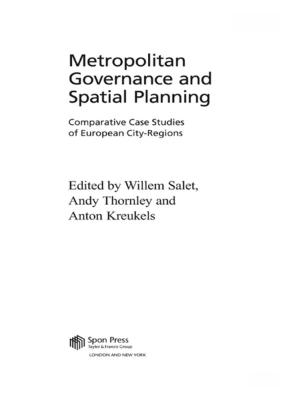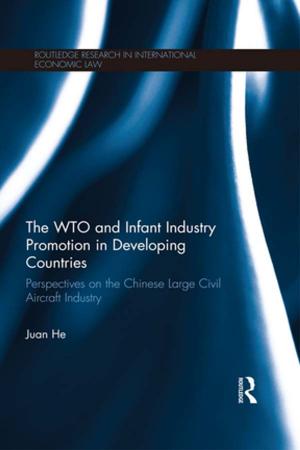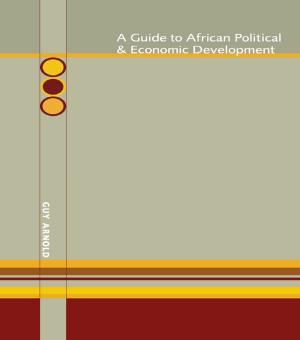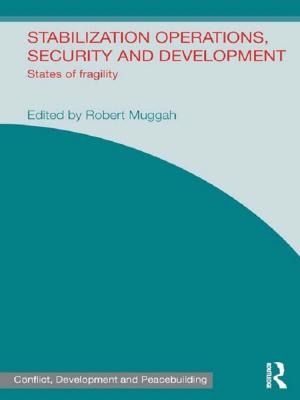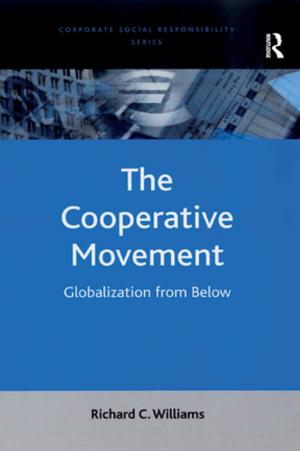| Author: | ISBN: | 9781136595752 | |
| Publisher: | Taylor and Francis | Publication: | March 12, 2012 |
| Imprint: | Routledge | Language: | English |
| Author: | |
| ISBN: | 9781136595752 |
| Publisher: | Taylor and Francis |
| Publication: | March 12, 2012 |
| Imprint: | Routledge |
| Language: | English |
There is growing consensus in the literature that trade and trade policy matter for a pro-poor growth and development strategy. Therefore, policies that are consistent with this strategy feature increasingly in many African countries where poverty is endemic and rapid and where sustainable economic growth is viewed as the major vehicle for poverty reduction. Key elements of these polices include measures that promote the expansion and diversification of production and trade in Africa. This book is aimed at articulating appropriate structural and policy measures for eliminating the constraints that African countries face and thus ensuring that they can derive maximum benefits from all available market access opportunities.
There is evidence that most African countries face external market access barriers in their major export destinations which are generally less constraining than those confronting countries in other developing country regions. Yet, they have generally not been able to take full advantage of the special (preferential) market access opportunities available to them. This suggests that improved external market access, whether reciprocal or preferential, would not, by itself, be sufficient for strengthening African export performance. In this collection, export supply response capacity takes external (beyond-the-border) factors as given and concentrates primarily on the internal (behind-the-border) factors that influence production and distribution costs and, thus, competitiveness.
The central working hypothesis of this book is that the inability of domestic producers and exporters in Africa to respond quickly, effectively and efficiently to external market access opportunities is caused by various limitations of their internal supply capacity and that this, in turn, is largely responsible for the lacklustre export performance of many African countries. This comprehensive study should be of interest to students and researchers of international trade and development economics as well as African studies.
There is growing consensus in the literature that trade and trade policy matter for a pro-poor growth and development strategy. Therefore, policies that are consistent with this strategy feature increasingly in many African countries where poverty is endemic and rapid and where sustainable economic growth is viewed as the major vehicle for poverty reduction. Key elements of these polices include measures that promote the expansion and diversification of production and trade in Africa. This book is aimed at articulating appropriate structural and policy measures for eliminating the constraints that African countries face and thus ensuring that they can derive maximum benefits from all available market access opportunities.
There is evidence that most African countries face external market access barriers in their major export destinations which are generally less constraining than those confronting countries in other developing country regions. Yet, they have generally not been able to take full advantage of the special (preferential) market access opportunities available to them. This suggests that improved external market access, whether reciprocal or preferential, would not, by itself, be sufficient for strengthening African export performance. In this collection, export supply response capacity takes external (beyond-the-border) factors as given and concentrates primarily on the internal (behind-the-border) factors that influence production and distribution costs and, thus, competitiveness.
The central working hypothesis of this book is that the inability of domestic producers and exporters in Africa to respond quickly, effectively and efficiently to external market access opportunities is caused by various limitations of their internal supply capacity and that this, in turn, is largely responsible for the lacklustre export performance of many African countries. This comprehensive study should be of interest to students and researchers of international trade and development economics as well as African studies.

